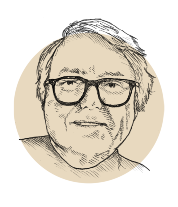Emmanuel Macron was re-elected as president of France in April. The pro-European centrist beat the far-right leader Marine Le Pen in the decisive second-round vote, becoming the first president to win a consecutive term since Jacques Chirac in 2002. But while Mr. Macron’s victory margin was comfortable – 58.55% to 41.45% – it was much narrower than five years ago (66.1% to 33.9%). Voter turnout was the lowest since 1969, with a record 28% abstention rate. More significantly, Ms. Le Pen attracted a historic score for the far right, attracting more than 13 million votes and creating an unprecedented political landscape through which the new administration will have to navigate.
Much will hinge on this month’s parliamentary election, which takes place in two rounds on June 12 and 19. Having pledged to “govern “differently” and listen more attentively to voters, President Macron hopes to win a substantial majority at the ballot box. His opponents across the political spectrum have vowed to stymie him by forcing him into a power-sharing arrangement known as la cohabitation. Originally a demographic term for co-dwelling, it has been used in politics since the 1980s to describe “the coexistence of a head of state elected by universal suffrage on a political program and a prime minister relying on an elected parliamentary majority to support an opposing policy.”
The election – also called les élections legislatives, or legislative elections – determines the composition of the lower house of parliament, comprising 577 members, or députés, elected for a five-year term. Voting is by direct universal suffrage and takes place in two rounds. The candidate who wins an absolute majority and 25% of the registered electorate in the first round is elected outright. If no one reaches that score, a second round is held among candidates receiving 12.5%; the person winning the most votes in the runoff is elected. (In some cases, more than one candidate reaches or exceeds that threshold. If three people qualify for the second round, the contest is called une triangulaire, or three-cornered round; if four, then une quadrangulaire.)
In the media and popular parlance, the parliamentary election is often referred to as le troisième tour, or third round, of the presidential ballot because it can make or break the incumbent’s rule. This is due to the unusual nature of France’s constitutional order. In most countries, the government and its leader emerge from a single election that determines the parliamentary majority. Other nations hold two direct elections – one parliamentary, the other presidential – but the latter has no consequence for the government. The U.S. also holds two ballots, but only the presidential election creates the government. In France, because of the powers invested in the president, both elections are actually governmental.
Until 2002, the head of state was elected for seven years, and the parliamentary election preceded that vote. The then-president, Jacques Chirac, organized a constitutional referendum in order to shorten the term to five years, aligning it on the parliamentary term, and to reverse the order of the two polls. The purpose was to give a newly appointed head of state the opportunity to build on their electoral momentum and, theoretically, consolidate their already considerable hold on power. However, if an opposition party succeeds in obtaining an absolute majority with 289 seats in the National Assembly, it can severely curb the president’s powers by forcing them to choose a prime minister from its ranks and assuming responsibility for most day-to-day policy matters. This was the fate that befell two previous presidents, François Mitterrand (twice), and Jacques Chirac (once) – a total of nine years. In all three periods, the power-sharing arrangement slowed the pace of reform because the executive and legislative branches of government had different agendas.
This June, the stakes could not be higher. President Macron’s re-election has dealt a death blow to the traditional right- and left-wing parties that dominated French politics for decades. But he remains deeply unpopular with large segments of the population, a quarter of whom did not turn out to vote in April. According to the journalist and editorialist Natacha Polony of Marianne magazine, the electorate is now split into three camps, “a radical left, a radical right, and a radical center,” that are “no longer adversaries but enemies.” How this enmity will affect the outcome of the parliamentary election will have wide implications, not just for France but for Europe and beyond.
Article published in the June 2022 issue of France-Amérique. Subscribe to the magazine.












